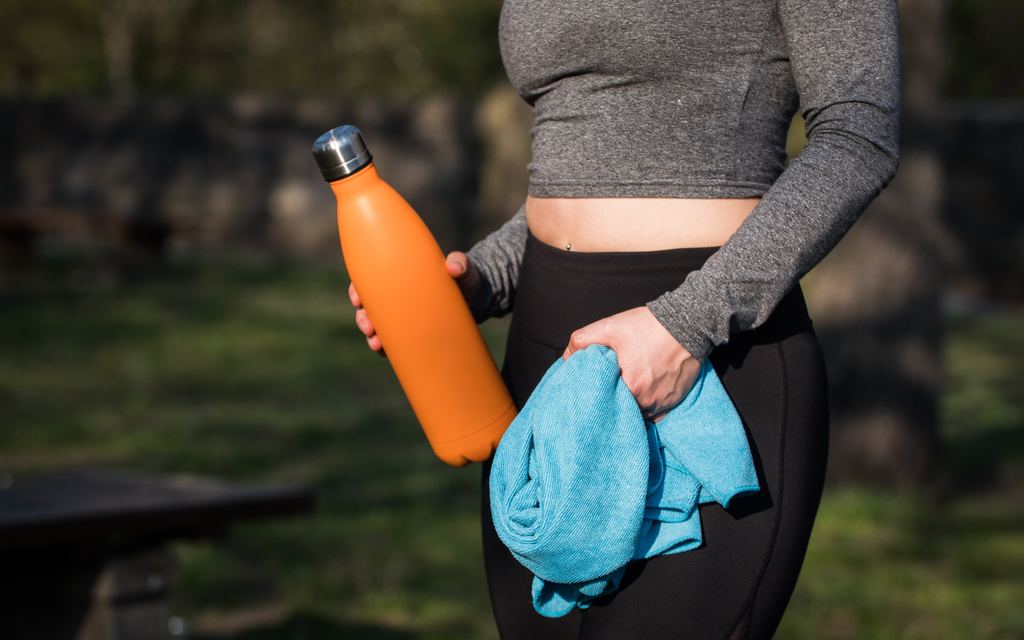It would be unreasonable to you if you expected to make any exercise feel 100 percent. You sometimes go to the gym or wherever you exercise to feel exhausted, lazy, and unmotivated. If this sounds like you, you choose the right pre-workout that can carry the power to ease the lull.
What's the science behind pre-workouts?
A study published in the Journal of the International Society of Sports Nutrition stated that integrating pre-workout with HIIT exercises resulted in substantial improvements in VO2 max. Also, an increase in training intensity and lean body mass while also accelerating the pace at which highly trained leisure athletes lost body fat was apparent.
This research validates pre-workout supplements' effectiveness, so if you plan to take action yourself, you need to know how to do so safely and intelligently.
Below, we've built a one-stop pre-workout guide that covers everything from the elite sports nutritionist's opinion to the pros and cons of supplementing your nutrition with the lifter's favorite pick-me-up.
What is pre-workout?
If you don't power yourself well before exercises or intense workouts, you'll be less energized, slower, and exhausted faster than usual. It is a reality. Pre-workout helps you fight this, to help you keep working faster and faster. The supplement comes in a range of formats—from meals to shakes to tablets and more—all intended to improve energy levels and increase concentration.
They are usually combined with a drink for specific pre-workout vitamins and taken about 30 minutes before starting the workout. That's because by providing the body with additional sugars, pre-workout glucose helps increase blood sugar levels and provide extra energy during workouts. In short, they're much more energetic than bananas, shots of espresso, or black coffee.
Is pre-workout safe?
Since pre-workouts help you get through a challenging exercise, it's no surprise to hear that they supply the brain with sugar, caffeine, and other energy-enhancing stimulants.
Even it's worth reading the ingredients label before you invest in a fresh pre-workout pot. Caffeine is the main component to search for since it can range from moderate to too much. In rare situations, excessive caffeine doses can cause certain severe health complications, such as paranoia, insomnia, and high blood pressure.
For most men, though, pre-workout is a healthy supplement to take, but still, at the safe end of the continuum, the side effects can also cause jitters, scratching, and disturbed sleep that is harmless but still unpleasant.
Pro Tip: If you're new to pre-workout, take half a dose to get off and see how your body responds.
How do pre-workouts work?
When you have a grip on the ingredients, you start to feel all the biochemical aspects that various ingredients work. However, certain additives in pre-workout vitamins are also under-dosed. You can take beta-alanine and creatine at least once a day, rather than only before the exercise. When it comes to the effectiveness of pre-training vitamins, the mode of action is mostly solely psychological. These supplements improve the desire to workout and decrease the subjective feeling of exhaustion.
Some additives in pre-workout blends also have physical effects on muscle tissue, such as reduced muscle injury and lactic acid build-up, improved intracellular nutrient accumulation, or increased glycogen resynthesis. Citrulline, carnitine, creatine, and beta-alanine are all functioning this way.
The majority of pre-workout mixes derive much of their benefits from caffeine. And while it has some physical effects on stamina, caffeine's primary influence is to inspire you to exercise, particularly when you're sleepy.
When do you need to take pre-workouts?
If you're going to improve your pre-workout results, when's the right time to take it? It's just that it's called a pre-workout. It doesn't mean you've got to take your pre-workout. You can take them 15-20 minutes before training. But for longer sessions, you could delay until an hour into the session." Always adhere to the specifics mark on your pre-workout. In reality, your pre-workout intake can be worth cycling.
If you manage to take pre-workout daily, your body will develop immunity to the effects, which is why Lovell encourages you to cycle the supplement or leave it for six to eight weeks at a time to allow your body a chance to reset. Cycling is the way forward. Also, get some stimulant-free ones that you can use most days or just some plain old tyrosine, an excellent budget pre-workout.
What are the pros to pre-workouts?
About 30 minutes to an hour before your exercise, it is prudent to think of a pre-workout snack or supplement – the purpose of pre-workout eating is to provide your muscles with the requisite energy reserves and help workout. It consists of protein and essential carbohydrates to be quickly digested and put to good use.
Energy reserves are decreasing quickly during exercise, pre-workout nutrition helps sustain the workout schedule and goals.
Improved performance: A study published concluded that pre-workout supplements have promise as an ergogenic aid for active individuals, or, in other words, improve the performance of people who have already exhausted the gym.
Increased attention and focus: Pre-workout with caffeine improves cognition. Caffeine acts on people's excitement, mood, and attention, but if you want to focus on a run, pre-workout is a supplement for you. A study has found that the citrulline applied to the pre-workout could contribute up to 53% additional bench press reps to the workout. Studies found Citrulline-containing pre-workouts to give cyclists a 12 percent longer ride before fatigue occurred.
The effects of pre-workout vitamins have come in just as much as protein supplements. When serious athletes grow more conscious of all that is possible to improve their fitness activities, they have sought the benefits of pre-workout supplementation.
Just as protein supplements offer the advantages of various amino acids for bodybuilding, the benefits of pre-workout supplements provide the extra boost you need for high-intensity workouts. Some clear pre-workout advantages include extra motivational capacity and improved blood supply for stamina.
What are the cons of pre-workouts?
Although pre-workout supplements can help improve your workout, it doesn't mean that they don't come without their downsides. Pre-workout supplements will also cause tachycardia—a pounding heart—when you take too many. High doses can also induce anxiety. All of these side effects are mainly due to caffeine.
Harmful side effects triggered by over-stimulation: If the jitters and disturbed sleep don't sound like fun, maybe it's time for you to skip the pre-workout.
Develop immunity with overuse: If taken excessively, the body can become resistant to pre-workout symptoms. To stop this, it's usually better to save pre-workout sessions where you 'go hard or go home' or attempt to ride a substitute once in a while.
Digestive problems: Additives such as sodium bicarbonate, magnesium, creatine, and caffeine can cause digestion problems. Stop this by testing out various pre-workout supplements before you find one that fits you. Scientists have historically related the initial energy drink class to diabetes, mental health issues, and kidney injury.
Some people are developing indigestion from pre-workout supplements. It appears to be caused by a mixture of caffeine, citrulline malate, and creatine, although it can usually be avoided by not taking an empty stomach pre-workout.
However, the main side effect of the use of pre-workout supplements is sleep impairment related to caffeine. The equivalent of a single, double espresso in the morning can affect sleep that night, even though you don't note it consciously.
The Takeaway
Pre-workout supplements improve athletic performance and energy, but science does not confirm many of their presumed benefits. While several of the ingredients can improve your efficiency, there are no uniform formulas and many possible downsides. Choose healthy, energy-enhancing foods like bananas and coffee instead to fuel your exercise.
However, if you choose to use a pre-workout product, it is safer to review the ingredients and opt for third-party approved supplements. Over everything, make sure you have a healthy diet, lots of fluids, and adequate sleep.




